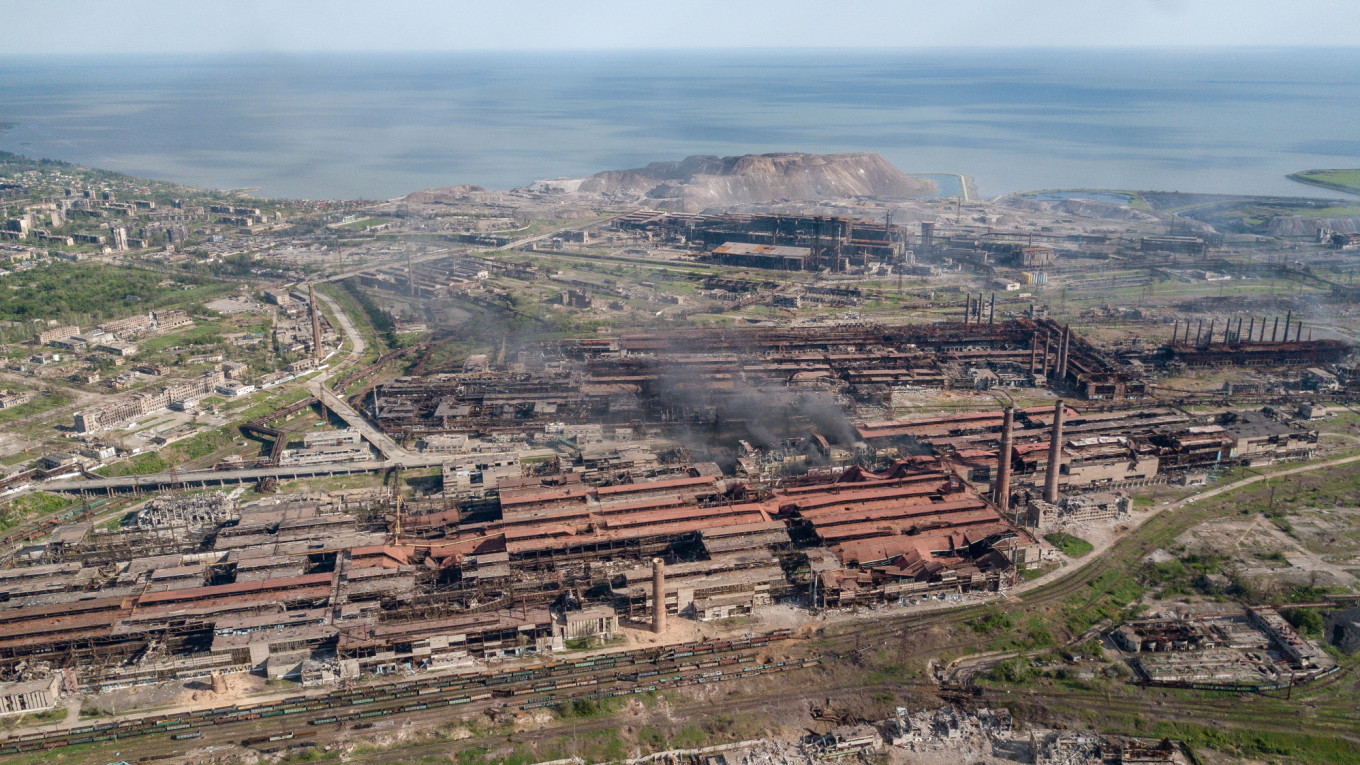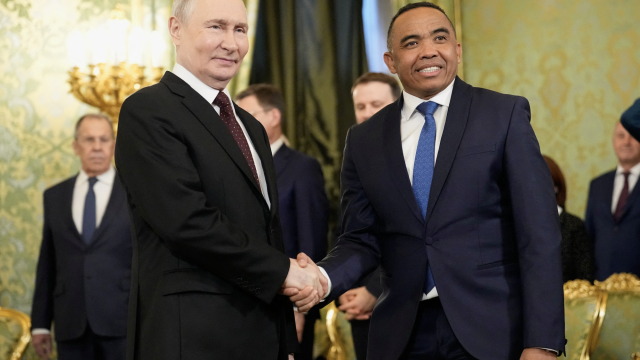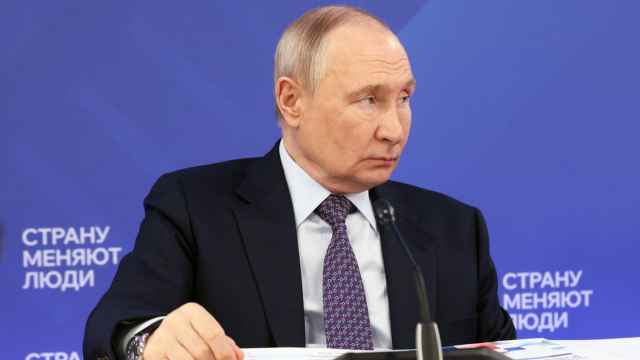The carcasses of charred buildings stand amid the lush greenery in what remains of the once bustling Ukrainian port city of Mariupol.
After weeks of siege and strikes much of the city on the coast of the Sea of Azov has been reduced to a wasteland.
As the last Ukrainian troops in the town surrendered to the Russians at the bombed-out Azovstal steel plant, passers-by mourned their fate.
Angela Kopytsa, a 52-year-old with bleached hair, said she saw no future for herself in Mariupol.
"There is no work, no food, no water," she said, adding that both her home and life had been "destroyed".
The city has lived without electricity since early March.
Kopytsa breaks into tears as she recounts how during the hostilities she had to share morsels of food with her children and grandson and how "children at maternity wards were dying of hunger".
"What future?" she said in Russian. "I have no hope for anything."
Three months of fighting in Mariupol have sent hundreds of thousands of people running for their lives and caused untold suffering and death.
Russia has pledged to rebuild the southeastern city and turn it into a seaside resort.
A Message from The Moscow Times:
Dear readers,
We are facing unprecedented challenges. Russia's Prosecutor General's Office has designated The Moscow Times as an "undesirable" organization, criminalizing our work and putting our staff at risk of prosecution. This follows our earlier unjust labeling as a "foreign agent."
These actions are direct attempts to silence independent journalism in Russia. The authorities claim our work "discredits the decisions of the Russian leadership." We see things differently: we strive to provide accurate, unbiased reporting on Russia.
We, the journalists of The Moscow Times, refuse to be silenced. But to continue our work, we need your help.
Your support, no matter how small, makes a world of difference. If you can, please support us monthly starting from just $2. It's quick to set up, and every contribution makes a significant impact.
By supporting The Moscow Times, you're defending open, independent journalism in the face of repression. Thank you for standing with us.
Remind me later.






